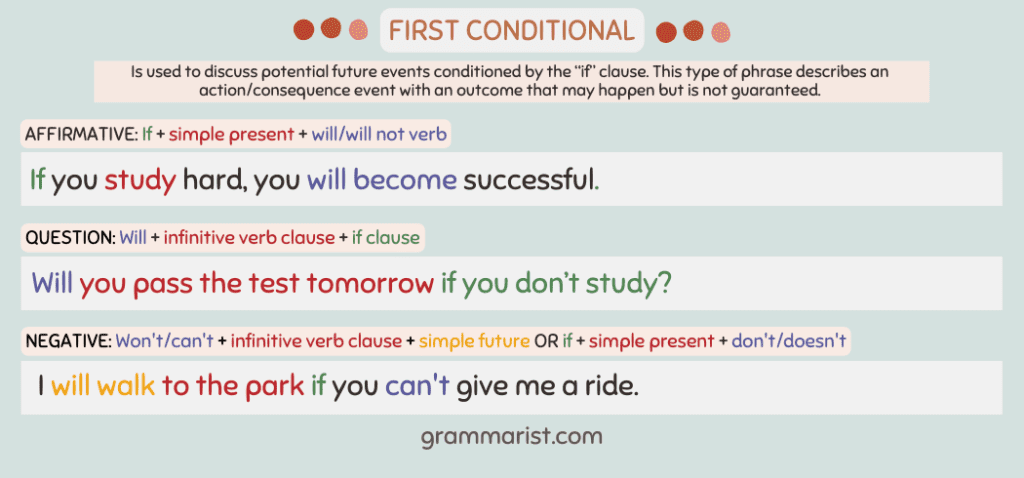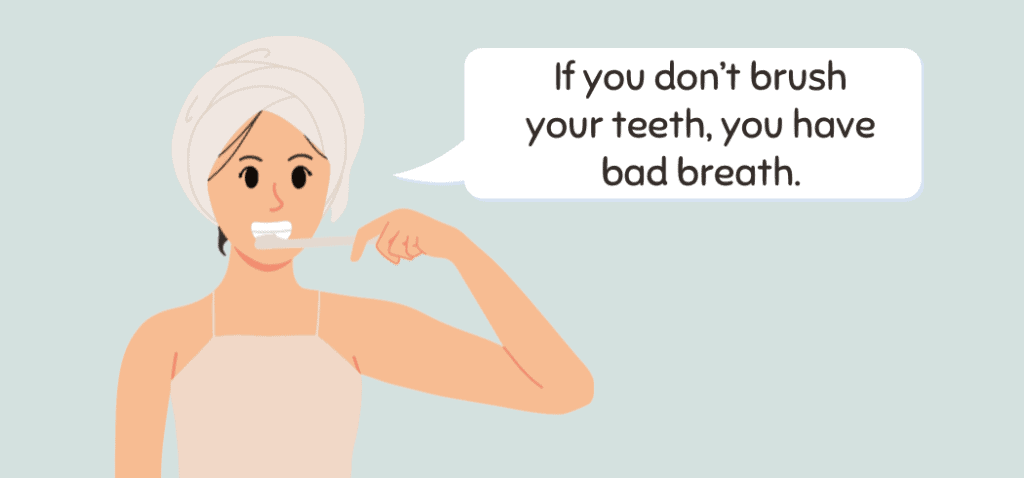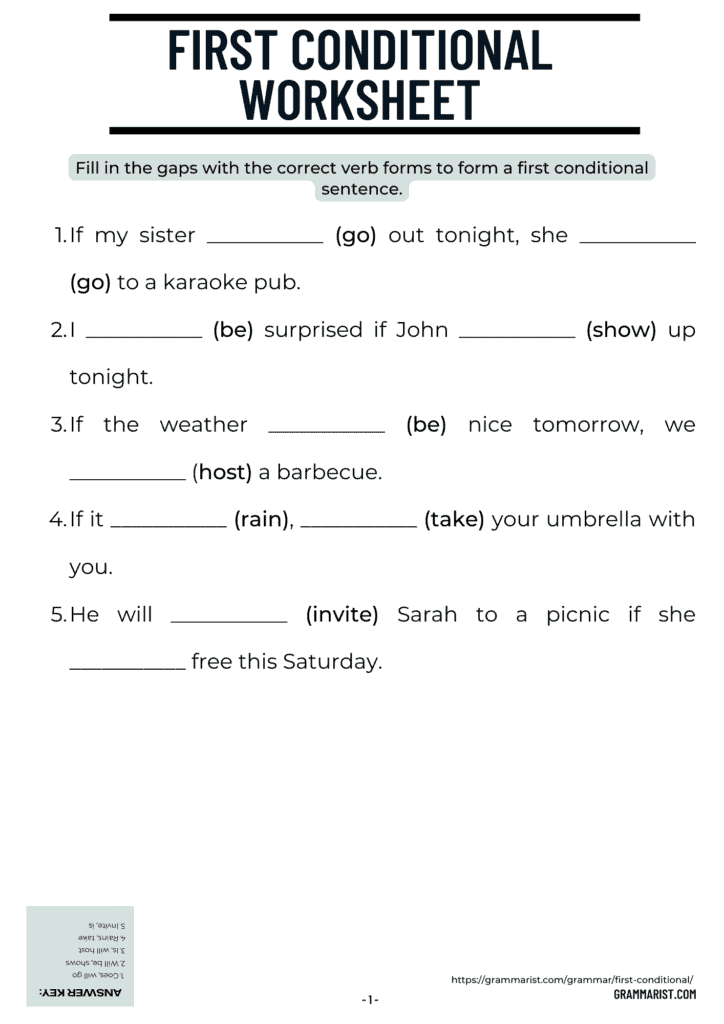The first conditional is a type of sentence used to talk about possible future events. It’s often confused with other conditional forms, and even I get them mixed up from time to time. Both native and non-native English speakers also use the wrong tense. My grammar lesson will teach you how to use the 1st conditional correctly with examples and a worksheet to help you practice.
What Is the First Conditional?

Conditional refers to a word, clause, verb form, or morpheme. A first conditional sentence is used to discuss potential future events conditioned by the “if” clause. This type of phrase describes an action/consequence event with an outcome that may happen but is not guaranteed.
A great example is when we talk about the weather. It is also a viable choice when talking about other plans. Here, I’ll show you some examples.
- If it rains tomorrow, I won’t go to the park.
- If you study hard for this exam, you will ace it.
When you want to form a first conditional sentence, you need to use the simple present tense with the “if” clause and combine it with the simple future tense in the main clause.
The idea is to use the “if” clause as a conditioner for the main cause, which MIGHT be the outcome predicted. This rule leads to great confusion for native and non-native English speakers alive.
For example:
- Correct: If you study, you will get a high grade.
- Incorrect: If you will study, you will get a high grade.
The second sentence is incorrect because the if clause doesn’t use the simple present tense. The first conditional structure is if + present simple + will/will not verb.
When to Use the First Conditional
When considering whether to use the first conditional, it is important to consider possible outcomes and circumstances. This type of conditional focuses primarily on possible events that could occur in the future, so it is crucial to evaluate the likelihood of these possible outcomes based on current knowledge or experience.
I often use the first conditional when talking about potential future consequences that might happen, even if they are somewhat uncertain.
What Are Examples of the First Conditional?
To better understand how the first conditional works, let’s look at some examples:
- If you study hard, you will become successful.
- If it’s sunny tomorrow, we’ll go for a walk.
- Will Sarah go to school if she has a toothache?
- I won’t listen to you anymore if you don’t lower your voice.
How Do You Write a First Conditional Question?
If you want to write a first conditional question, you can use will + infinitive verb clause + if clause.
Examples of first conditional questions:
- Will you pass the test tomorrow if you don’t study?
- Will Sarah lend me her class notes if I ask nicely?
How Do You Write a First Conditional Negative?
The most straightforward formula for making a first conditional negative is won’t + infinitive verb clause + simple future.
Examples:
- I will walk to the park if you can’t give me a ride.
- You will have to come by bus if I can’t come and pick you up.
You can also use if + simple present and add the word don’t or doesn’t. Like this:
- We can go to the show if it doesn’t rain.
- I’ll have to use my bike if you don’t lend me the car.
First Vs. Zero Conditional

Unlike the first conditional (which expresses the possibility of an outcome in a potential situation), the zero conditional describes general truths.
For example:
- If you overeat candy, your teeth go bad.
- If people don’t recycle, the planet suffers.
Both clauses in the sentence must be in the present simple tense when forming the zero conditional. This is where many people make mistakes, as they use the future tense in the main clause.
Note that “when” and “if” can be used interchangeably because the outcome is the same in either case.
For example:
- When you don’t brush your teeth, you have bad breath.
- If you don’t brush your teeth, you have bad breath.
First vs. Second Conditional
When using the second conditional, we describe situations that are not likely to happen in the future or are completely unrealistic.
For example:
- If I became president, I would legalize drug use.
- If she went to the moon, she would take a selfie.
The correct way to form a second conditional is to use the “if clause” with the simple past tense plus an auxiliary model verb (might, would, should, could) in the main clause.
Final Thoughts
In my guide, we’ve looked at the first conditional and how to use it. Do you feel confident using this conditional now? We’ve also looked at when to use the first conditional instead of the zero conditional or second conditional. With enough practice, you can easily use this important English grammar structure. I promise!

